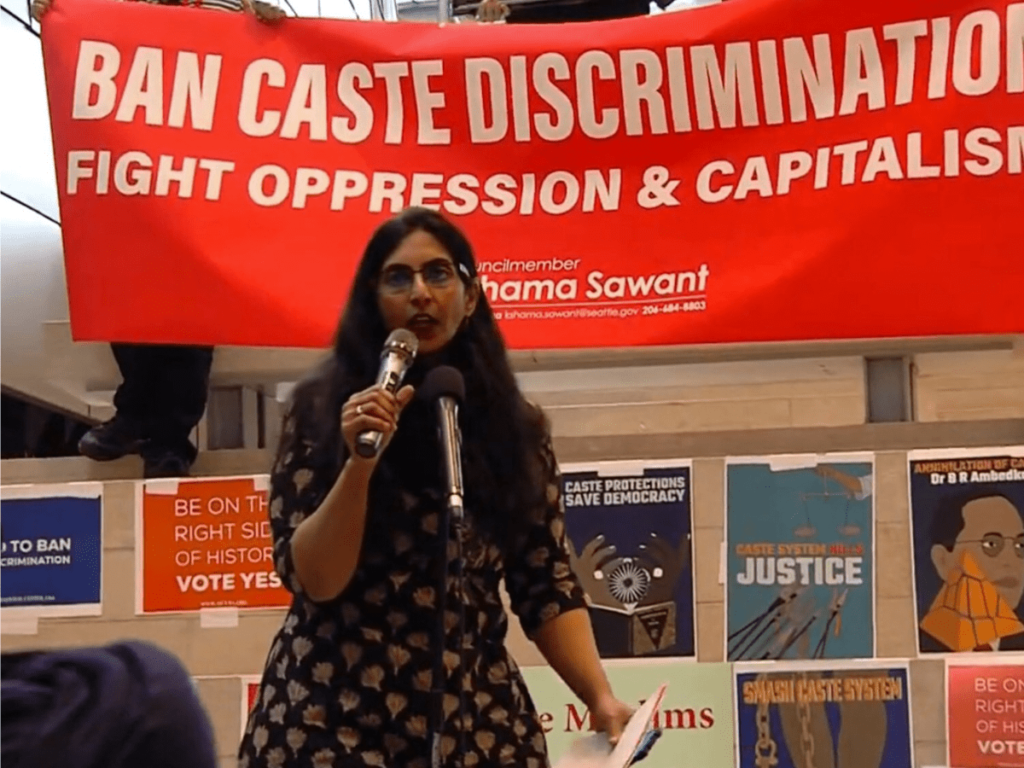The caste system of Hinduism may be unique to the Indian subcontinent, but America’s current racial relations have some eerily similar aspects. This has made North America a major breeding ground for the cultivation of the caste system, and today, racial discrimination and the caste system have become “scars” in American society that are hard to heal.
“Since the last century, I came to America with my father, and in this land of freedom and multiculturalism, I found myself uncomfortable with the conservative and entrenched impressions.”
It is well known that Indians and Indian Americans are often viewed as the “model minority” in the United States. Compared to ordinary immigrants and average Americans, this group is more likely to have received higher education, have health insurance, be essentially middle-class, hold higher positions in major companies. They have extensive representation in the fields of science, technology, engineering, and more and more of them are exerting significant influence in American society, including the current Vice President Kamala Harris. One could say that this community perfectly embodies what is known as the “American Dream.”
However, several lawsuits and legal investigations over the past period have provided clearer insight into this Asian ethnic group, revealing that they are still subjected to caste discrimination even after traveling thousands of miles from India to the United States. The racial differential treatment of various minority ethnic groups in America is becoming increasingly severe. Many Americans may be unfamiliar with these terms—such as Dalits, Shudras, and Vaishyas—but behind these names lies a familiar theme: racial/caste discrimination.
A 2016 study by the Equality Labs found that in a survey of over 1500 people, 41% of those identified as low caste Indians said they faced caste discrimination in American middle schools and universities, while the percentage among high-caste respondents was only 3%. The survey showed that 67% of low-caste respondents said they had faced caste discrimination in the workplace, while this percentage was only 1% for high-caste respondents. The executive director of Equality Labs, Thenmozhi Soundararajan, said that although the higher castes have more power, in the U.S., caste discrimination is not simply the high castes discriminating against the low castes but is more complex. She said, “In fact, it’s all castes discriminating against all castes.”
On February 22, 2023, the Seattle City Council officially passed the anti-caste system bill proposed by Indian-American council member Kshama Sawant, making Seattle the first U.S. city to explicitly ban caste discrimination. But this move sparked protests from many conservative Americans, who see the inclusion of anti-caste systems in public policy as causing “Hinduphobia” in America. Over the past few years, at least ten Hindu temples and five statues (including those of Mahatma Gandhi and Emperor Shivaji) have been vandalized in the U.S., with racists using this as a strategy to intimidate the Hindu community.
As quoted in an article from “Real Change” on the Seattle City Council’s official website: “Caste discrimination ‘remains largely a hidden and unreported problem,'” particularly as racial tensions in America have heightened conflicts between other people of color and white and Black ethnic groups in recent years. Discrimination in employment and education due to the Indian caste issue has oppressed the individual rights of Indian Americans to some extent.
Changes against the caste system are limited for now, but as a “model minority,” Indian Americans are making significant contributions to the United States. Ironically, their individual rights and interests are still continually undermined by racial discrimination— the pain caused by the caste system is no different from racial prejudice. It is not merely caused by hateful slander, but by a broad and intimate system interwoven in social behavior, cultural customs, and economics.
Whites need to change, Blacks also need to change, and Indian Americans need more space. It is believed that America is broad enough to allow all ethnic groups to live better!
For more information, visit https://bakapoor.substack.com/p/caste-in-the-land-of-freedom
